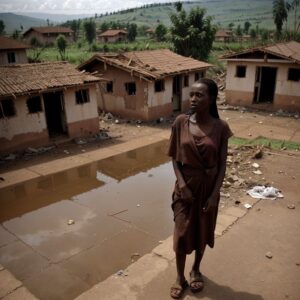On April 7, 1994, one of the darkest chapters in human history began—the Rwandan Genocide. Over the course of just 100 days, nearly one million people, mostly Tutsis, were brutally murdered by extremist Hutu militias. Fueled by deep-rooted ethnic tensions, propaganda, and decades of colonial influence that exacerbated divisions, the genocide unfolded with shocking speed and unimaginable brutality. Families were torn apart, entire communities were wiped out, and the world stood by as Rwanda descended into chaos.
The seeds of the genocide were sown long before 1994. Colonial powers had favored the Tutsi minority, creating resentment among the Hutu majority. Decades of political struggles and violence culminated in a growing movement of Hutu extremists who sought to eliminate the Tutsi population entirely. When Rwandan President Juvénal Habyarimana, a Hutu, was killed after his plane was shot down on April 6, 1994, it became the spark that ignited the massacre. Almost immediately, roadblocks were set up, and Hutu militias, known as the Interahamwe, began hunting down Tutsis and moderate Hutus, slaughtering them with machetes, guns, and crude weapons.
The international community largely failed Rwanda in its greatest time of need. Despite warnings from humanitarian organizations and UN peacekeepers on the ground, world leaders hesitated to intervene. The United Nations had troops stationed in Rwanda, but with limited authority and resources, they were powerless to stop the killings. Countries that had the power to help instead evacuated their own citizens and turned their backs on the crisis. The failure to act remains one of the greatest moral stains on modern history.
Amid the horror, there were stories of resilience and survival. Many brave individuals risked their lives to hide and protect those being hunted. The genocide finally came to an end in July 1994 when the Rwandan Patriotic Front (RPF), led by Paul Kagame, took control of the country and stopped the slaughter. The aftermath left Rwanda in ruins, with survivors traumatized and entire families lost. However, in the decades since, Rwanda has made remarkable strides in rebuilding, promoting reconciliation, and ensuring that such atrocities are never repeated. The Rwandan Genocide stands as a haunting reminder of the consequences of hatred, division, and international indifference.

